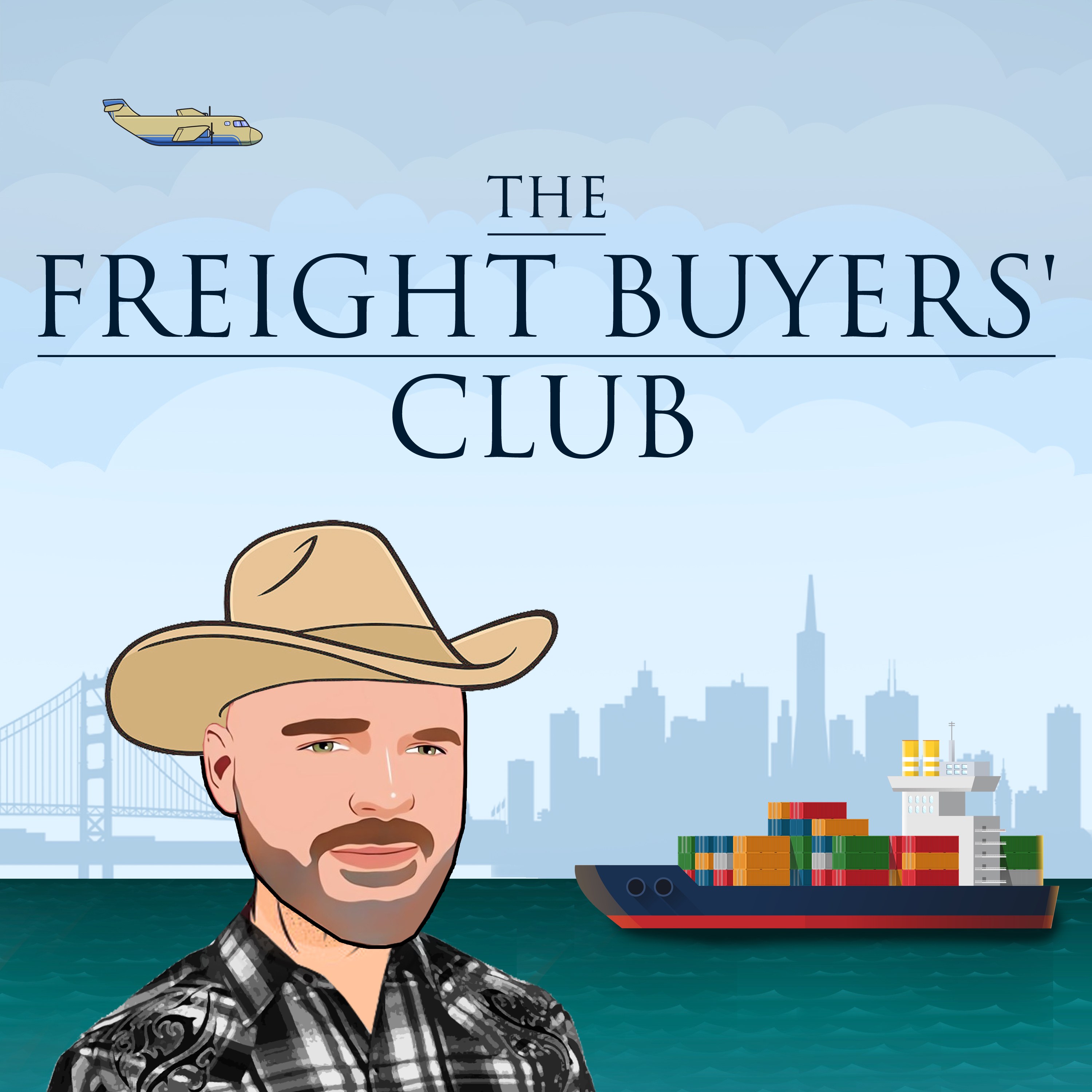Episode Transcript
[00:00:03] Speaker A: Hello everybody. I'm with Jan Tiedemann, senior Shipping Analyst at Alphaliner here at Transport Logistics in Munich. Welcome to the Freight Buyers Club, Jan.
[00:00:12] Speaker B: Thanks for having me.
[00:00:13] Speaker A: Or I should say welcome back.
Just on the shipping point, on the shipping side of things, how would you say the shipping order book is at the moment?
[00:00:23] Speaker B: Are we really?
[00:00:24] Speaker A: If you separate out, say, the Red Sea. And is this really a period of excess supply?
[00:00:29] Speaker B: Well, on the one hand it is crazy, but on the second look, it might not be as crazy as you think. We currently have a global container ship fleet of about 31 million EU floating around on the oceans right now and the container ship order book is creeping up to roughly 10 million. Yeah, it might soon pass 10 million to you. So that's almost one third of the fleet. And that does seem excessive, really.
However, there's a few things to consider. So first of all, under normal circumstances, the order would reach two, maybe three years into the future. Now we have ships on order which will only be delivered in 2031 actually. So we are five, sometimes up to six years out. That's because the yachts are sold out and carriers need to secure their new building slots. At the same time, we are facing an environmental transition.
We need new fuels to come in on a big scale. We need more environmentally fueled friendly fuels. And also we need ships which, irrespective of what kind of fuel they burn, they burn less fuel per tu. So more economical ships may be designed for slower speeds, etc. Etc. So if you take that into consideration, the order book is big. And people are always scared when I say we currently have the largest container ship fleet in history and the biggest order book in history.
But if you take these two things and you see it in perspective, yes, it is still big. And I'm not saying it will go smooth. There might be some hiccups, there might be a period of overcapacity, but it very much depends on the horizon whether you look into the future for one, two or three years or whether you see the next decade.
[00:02:09] Speaker A: And with these new US regulations on Chinese built ships and port calls fees, are we seeing people favoring Japan or especially Korea in terms of China yards, in terms of owners placing new build orders in the future?
[00:02:23] Speaker B: Not really on a big scale. So what the Korean yards did, obviously they tried to leverage that into asking a premium. A Korean yard is already more expensive than a Chinese yard, sometimes 15, sometimes 20%.
What I heard from some owners is that they were asking for even higher prices, a higher price premium compared to ships of roughly comparable quality from China and that was maybe a bit excessive. So I believe that ship owners and carriers, maybe if they could get the ships in Korea for an additional capital investment of maybe 10%, they would be inclined to do that.
However, if it's creeping up towards 30%, maybe that is too much. And also these ships, if you order them today, they will come in 28 earliest, maybe 29 up to 20, 20, 30. Who knows? Will there be a Trump administration?
What will the US policies look like when these ships are delivered? So all this recent policy making has been way too erratic. So you cannot really place any long term bets on it. So the short answer is no, except maybe a little bit. And also finally, there's three major yachts which can build big container ships in Korea or three big yacht groups and there's plenty of them in China.
And we have seen so many orders now that the Koreans were almost unable to increase their capacity overnight. There's planning procedures, there's labor shortages in China, that's a whole different story. We have a failing real estate sector in China. We have a lot of construction workers from who shift over from building houses to building ships. There's a lot of labor available in China.
Steel is available also from a downturn in building and the yards can very easily expand. There's no longer planning processes, so we will see the majority of orders go to China.
[00:04:18] Speaker A: Nevertheless, and just a quick one on the US Shipbuilding, Is short term policy planning a good recipe for long term shipbuilding success and the emergence of the US as a maritime power?
[00:04:28] Speaker B: Well, I don't really see. I can understand America's desire to become a shipbuilding nation because they have realized, oh, we have let that slip away. And that's not a stupid idea to promote the shipbuilding sector because in a globalized world you need to be able to build your own ships. You cannot be completely dependent on others. And to a degree that is also true in Europe today. In Europe we're only building small ships or very specialized ships like, like cruise vessels. But all the shipyards, I could rattle down A list of 20, 30, 40 shipyards, German shipyards alone, which no longer exist, which built container ships 10 years ago. They don't exist anymore. So I think it is not a bad idea to try to promote shipbuilding in the USA and also in the US Sorry, in the European Union for that matter.
At the same time, there's no chance whatsoever that American yachts will be able to scale up. They are very, very expensive ship. I just mentioned lamented that ship owners find a Korean ship Too expensive at a premium of 25 to 30% over a Chinese built ship. An American ship will require a premium of 400% before at least four times, maybe five times as expensive. And the American yachts cannot scale up. So what I think is we will see punctual efforts to make shipbuilding a US thing again, even commercial shipbuilding, which so far is only the case for Jones act tonnage.
And maybe carriers will commit over time to a certain quota like we build X percent of our ships in the US and also as a gesture of goodwill to cooperate with American manufacturers. But I don't see a huge comeback of American shipping. That's just unrealistic.
[00:06:12] Speaker A: And finally to finish, Jan, you did a great breakdown of how a carrier's EBIT performance. Now things have dropped in the last quarter, but are you impressed by their ability to balance supply demand? And from a freight buyer's point of view, your idea of being impressed might be the opposite from a freight buyer's point of view, but you're impressed by Lionel strategy.
[00:06:32] Speaker B: Honestly, I don't even know how they did that.
What we did see is, well, we thought that the carriers would have to do a lot with all these new ships coming in and with demand maybe waning to balance that somehow keep that check and to make sure that the rates are not dropping endlessly. However, the thing that surprised everyone is that over the last few months demand has been surprisingly strong and constant.
Every two weeks my company, we do a scan of the ships which are unemployed and for many years it's virtually zero. I'm already and my colleagues were struggling to write something about the unemployment. We could just write on the page, hey, look at last week and the week before and the week before.
So the entire liner fleet is used right now. How exactly where that comes from is to me like a little bit of a mystery to be honest. There's front loading effects, there's front loading effects related to the tariffs coming in later. You know, better safe than sorry. Get the cargo into the US or to Europe now.
But quite frankly, I don't have a proper answer to that.
[00:07:40] Speaker A: Jan Tiedemann, thanks very much for your time today on the Freight Buyers Club.
[00:07:43] Speaker B: My pleasure.


